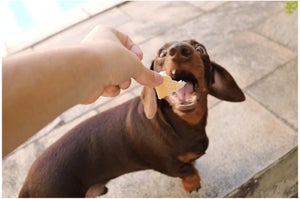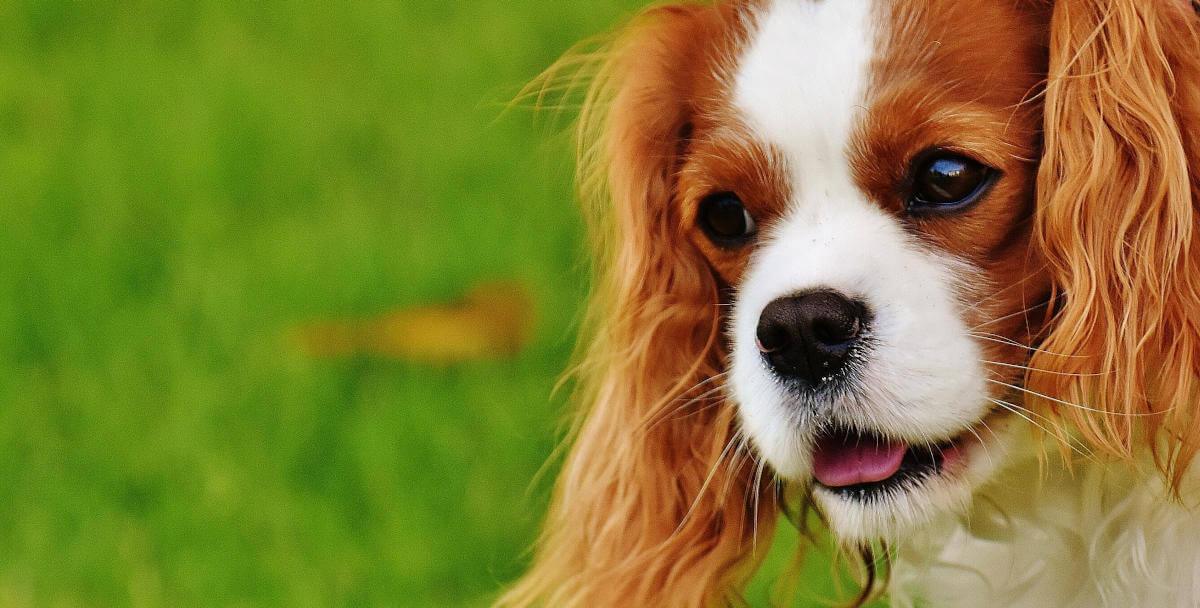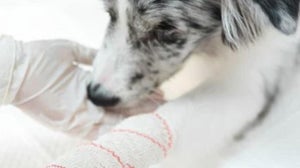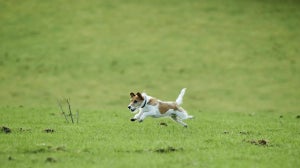
Your puppy is a member of your family, so it is normal to worry about the state of their health. Fortunately, even though your puppy cannot tell you whether they are healthy or not, there are some sure signs that he or she is fit, vigorous and strong.
Weight gain
Your puppy has a lot of growing to do, so feeding a consistent and balanced diet suitable to their age and breed will ensure you raise a healthy dog. If they are vigorous and fit, they will start to gain weight at a consistent rate. Typically, the ideal weight of a healthy dog is one where you cannot see the ribs but can see the tapered shape of the waist. If you are worried he or she is not gaining weight quickly enough or have lost their appetite, don’t change their diet without speaking to your vet first, and resist giving your puppy table scraps. If your puppy is gaining weight too quickly, make sure to speak to your vet to see if they suggest reducing meal sizes or changing their food.
Eyes and Mouth
Bright, clean eyes with relaxed lids are a key sign your puppy is doing well, while any cloudiness, redness or swelling should be reported to your vet. Meanwhile, prolonged wide eyes where you can see the whites is a sign of fear or anxiety. A healthy puppy mouth is similar to a healthy human mouth: fresh smelling; pink gums; no sores; and plaque-free teeth. A relaxed, wide mouth is a sign they are happy, too, but be careful not to confuse this with panting as they may be too hot, or could also be stressed.
Ears and nose
Your puppy is in good shape when their ears and nose are clear and without dirt or discharge. His or her nose should be slightly moist and the ears relaxed. If your puppy is sniffing or sneezing persistently, it might be a sign of an allergy, a sting or something lodged where it shouldn’t be, so pay a visit to your vet.
Coat
Coats should be shiny and clean. Parasites, diseases or food intolerances can leave the skin patchy, red or itchy, and excessive scratching will create a dull, flaky coat. However, even if your puppy is fine physically, stress or anxiety can cause the coat to dull and shed excessively. A regular bathing routine is a great way to keep your puppy looking and smelling at their best, but part of that healthy shine comes from their own natural oils. Purchase a shampoo suitable for your puppy’s breed and consult the instructions for guidance on how often to have a bath. James Wellbeloved foods are naturally hypoallergenic and, as such, can be very useful if your puppy is itching due to an ingredient intolerance. If you are unsure why your puppy is itching, it’s best to take them to be checked by a vet.
Regular bowel movements
Stool should be firm, excreted in one go and not show any signs of blood or discolouring. Also, once your puppy has established a toilet routine, they will try to stick to it, so any deviation from this could be a sign of some tummy or urinary trouble. Parasites and viruses aren’t the only things which can upset your puppy’s digestion; stress can, too. If you have only recently brought your puppy home, they might be feeling a little anxious. However, even if this is the likely cause of any loose stool or constipation, you should still report it to your vet.
Engaged and interested
Puppies want to spend time with you, are excited to play and like to roll around or offer a few playful barks. Happy and healthy dogs will also wag their tails often and have relaxed postures. It is highly unusual for puppies to want to take themselves off by themselves for prolonged periods, to suddenly become destructive to the environment, other than normal puppy-chewing, or to have disturbed sleeping patterns. If your puppy shows any such signs, take a trip to the vet for a check-up.

Related Articles








